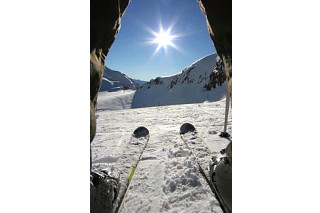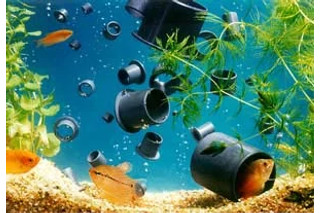Change Language :


At time of writing, Winter has arrived here in New England - and, with it, the cold weather. For some of us, this also means snow. The snow isn't for everyone but, personally, I'm always thrilled, since I love to ski. When I ski, I like to be one of the first people on the mountain before the crowds show up, so I can go down the mountain as fast as possible without worrying about crashing into another skier. Now don't get the wrong idea - I'm going fast by my standards, but not really when compared to other skiers!
It was a different story when my kids were on the ski race team, however - they skiied extremely fast!
Before every race, it was Dad's responsibility to take their skis in to be waxed. Using the right type of wax was crucial, as the wrong wax could slow them down by tenths of a second and make all the difference in a race.
Interestingly, the person waxing the skis would not ask what type of wax you wanted, but would instead ask about the conditions you'd be skiing in - such as the temperature, type of snow, etc. I'm not an expert on ski wax itself, but I could tell them what the type of conditions would be and then the expert would determine the best wax to use.
In the same way, we ask our customers for application data: speeds, loads, temperatures and other such parameters.
From this information, we can assess which bearing material will work and how long it will work for. You can leave it to igus® as the bearing experts to advise you on the best iglide® material, just as I did with the person waxing my kids' skis.
Time and again, we're asked, "What are your bearings made from?", or "What kind of plastics do you use?" However, I'd argue the precise makeup of our bearings pales into insignificance when you consider that we've spent over 40 years building up a vast database of plastics' tribological properties, alongside a wealth of experience in real-world bearing applications on which we can draw on.

H370 water-resistant bearing material
Indeed, we've made it our business to develop high performance, plastic bearing compounds capable of delivering longer life at lower cost. We hold our bearings to high standards: they must be able to handle high loads over an extended period of time, have low coefficients of friction, as well as low wear rates to optimize service life.
In addition to these general properties, every iglide® bearing material possesses a number of special features making it suitable for particular applications and requirements. For example, iglide® M250 excels in applications in which vibration dampening is necessary, iglide® H370 is characterized by very low water absorption, and iglide® T500 is defined by its combination of high-temperature resistance, compressive strength, and high chemical resistance. We offer 12 standard materials and 16 specialist materials, all of which offer unique advantages.
To summarize, my advice to you would be to try delegating a little this year. Allow igus® to make informed recommendations based on your application: whether you draw on the expertise of one of our technical specialists, or instead try using our Expert System program.
Either way, we wish you a stress-free and highly profitable year!
Useful Links